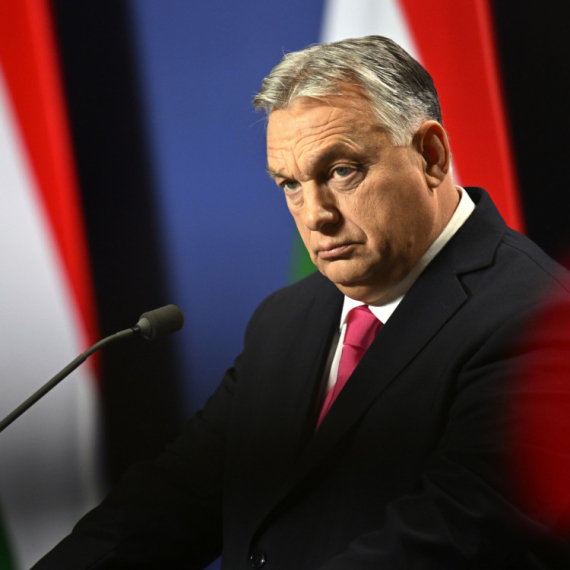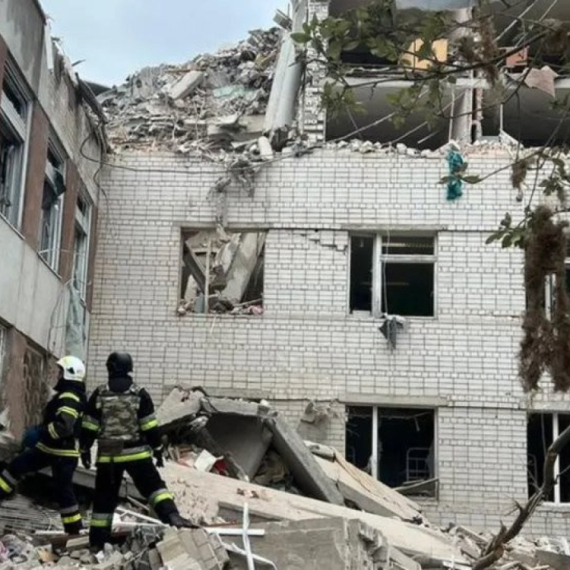European parliament passes resolution on Šešelj
The European parliament (EP) passed on Thursday a non-biding resolution on leader of the Serb Radical Party (SRS) Vojislav Šešelj after a one-hour debate.
Thursday, 27.11.2014.
14:04

European parliament passes resolution on Šešelj
Eduard Kukan, chairman of the EP delegation for relations with EU aspirants in the Balkans, said at the beginning of the debate that the draft resolution will increase the tensions in the region, instead of easing them, so he will not back it.I understand fully the evil of wartime rhetoric and hate speech, especially in the Western Balkans, Kukan said, noting that the resolution attaches to Šešelj the importance he does not deserve.
Because of that, and because of the fact that the resolution criticizes the independent court established by the United Nations Security Council, I will not support this resolution, Kukan said.
Bulgaria's MEP Angel Dzhamazki took a similar stand, stressing that, in his opinion, the Serbian authorities have already distanced themselves from Šešelj, so there is no need for the resolution.
However, a majority of MEPs backed the resolution proposal, Croatia's MEPs being the most vocal, as the resolution was tabled for discussion on their initiative.
Croatian MEP Ruza Tomašević said that this topic would not be discussed if the Serbian authorities had distanced themselves right away, and expressed her disappointment with the Tribunal's operations, qualifying them as inefficient and biased.
MEP Andrej Plenković said that it appears to him that Serbia's top officials tacitly agree with Šešelj or fear him.
"What is the problem President Nikolić, Prime Minister Vučić and Minister Dačić? Why do you remain silent?," he asked.
Slovenian MEP Ivo Vajgl said that Šešelj is a metaphor for crimes in the former Yugoslav region, adding that he will support the resolution since hate speech must not be tolerated in today's Europe.
At the end of the debate, the MEPs were addressed by Humanitarian Aid Commissioner Christos Stylianides on the behalf of EU High Representative for Foreign Affairs and Security Policy Federica Mogherini, who noted that the EU respects decisions of the ICTY, while Šešelj's statements belong to the past.
As for Serbia, we welcome the Serbian government's commitment to the European pathway, development of regional relations and cooperation with the ICTY, he said.
The resolution reads that the Parliament strongly condemns Šešelj's warmongering, incitement to hatred and encouragement of territorial claims and his attempts to derail Serbia from its European path.
The resolution also says that Šešelj's provocative public activities and wartime rhetoric since his provisional release are renewing the victims' psychological scars from the war of the 1990s and stresses that his recent statements might hinder the progress in regional cooperation and reconciliation, and subvert the efforts made in the recent years.
The resolution not only “notes with concern that the absence of an adequate political reaction and legal response by the Serbian authorities regarding Šešelj's behavior undermines the trust of the victims in the judicial process” but also “encourages the Serbian authorities to condemn any public demonstration of hate speech, wartime rhetoric and to investigate whether Vojislav Šešelj violated Serbian laws and convey their position on this issue.”
In the resolution, the European parliament lauds “Women in Black” and other non-governmental organizations in Serbia for their activities to draw public attention to war crimes of the 1990s.
The European parliamentarians call on the ICTY and the ICTY's Office of the Prosecutor to undertake measures to re-examine the existence of requirements for Šešelj's provisional release under new circumstances, emphasizing that different standards regarding the Tribunal's practice concerning release would not contribute to the achievement of the ICTY's objectives.
The motion for the resolution “encourages the ICTY to take determined actions to reaffirm confidence in the ICTY undermined by Sešelj's appalling and inadmissible public statements, including taking all necessary measures to accelerate the completion of all trials and appeals before it.”
The resolution, which is not a binding document, does not contain the request by the European Liberals and Greens to seek from Serbia to open the military archives of the former Yugoslavia to help establish responsibility for the crimes and determine the fate of the missing.

































Komentari 6
Pogledaj komentare